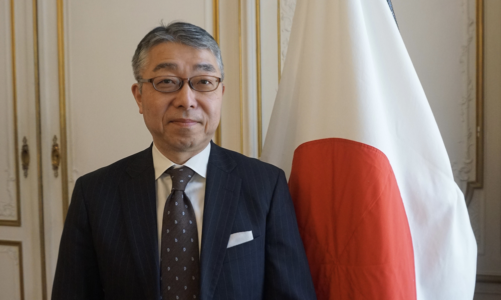Before working as director at the Institute for the Study of Totalitarian Regimes in 2010-2013, Daniel Herman held different posts in the Church and in government administration. After being elected a deputy for the Christian and Democratic Union – Czechoslovak People’s Party in 2013, he was appointed the Minister of Culture in 2014. He is a member of the Government Council for Human Rights.
Liechtenstein will open its first-ever honorary consulate in the Czech Republic in the autumn. It will be based in Brno, and the government of he principality has chosen former Czech culture minister, Mgr Daniel Herman, as the first honorary consul. “I am very happy that we have managed to find such a skilled and respected personality for this important job,” says Liechtenstein Foreign Minister Dominique Hasler.
Mr Herman, how did Liechtenstein actually find you and how did you find Liechtenstein?
I adhere to the Judeo-Christian concept of the world. I believe that if a man is open to God, to himself and the world, he will get to the right places. If you look back at my activities in the Church, politics and public administration, you will see that this journey towards the Liechtenstein topic makes sense in the context of my public efforts. Whether I was dealing with human rights, Nazi and Communist crimes, reconciliation between the Czechs and Germans, the Roma issue or reconciliation with the past as such, I always tried to achieve one thing: to prevent historic prejudice from diverting us from the truth, justice, and hence from a successful future. I have always understood the culture of remembering in the context of the general cultural life of our country as one of the top priorities of my work. It is the same when it comes to relations between the Liechtensteins, the principality and the Czech lands: we must not close the door to a cooperative and prosperous future because of ignorance, a black-and-white view of the world, or demagogy. That is, I am immensely honoured by the fact that Liechtenstein found me on my way and that we met.
What will be your chief task?
One of the main tasks of the new honorary consulate is boosting the rich ties between both countries, especially in Southern Moravia where the Liechtensteins were already invited by Czech King Přemysl Otakar II in 1249. Brno as the seat of the honorary consulate has not been chosen at random. Numerous traces of the Liechtensteins’ intensive activities are still visible in Southern Moravia in particular, not only in culture, but also in the economy, science and education. Of course, the most visible evidence is off red by the Lednice-Valtice Area, which is one of UNESCO’s World Cultural and Natural Heritage sites. As Minister of Culture, I often encountered this unique phenomenon of a cultural landscape that we can be deservedly proud of. In general, my goal will be to help create a basis for a deeper cooperation, which could overcome the problems of the past. Liechtenstein is a modern country which has a lot to offer to the Czech Republic in education, the economy and innovations.
Is there already a Czech honorary consulate in Vaduz?
Yes, the Czech Republic already opened its honorary consulate in Liechtenstein in 2018, and Dr Thomas Zwiefelhofer, former Deputy Prime Minister of the country, was appointed the honorary consul.
Many people may find it hard to imagine the possibilities of cooperation between the Czech Republic and a state that has fewer than 40,000 inhabitants.
I can understand this, and so I would like to point out that about 20,000 people from Switzerland, Austria and Germany come to work in the principality every day. The local economy is based on knowledge and innovations, and industry makes up the largest part of GDP of all economic sectors. Liechtenstein and the Czech Republic are already closely linked in terms of the economy owing to their membership of the European Economic Area (EEA) and by means of an agreement preventing double taxation, as well as owing to Liechtenstein companies operating in the Czech Republic. Cooperation in education is based on a student exchange between the Liechtenstein Grammar School and the Matyáš Lerch Grammar School in Brno and on a cooperation agreement at the university level. And finally, many bilateral projects in the Czech Republic are financed from EEA funds.
Thank you for the interview.
Text: Michal Dvořák
Foto: archiv ČTK




